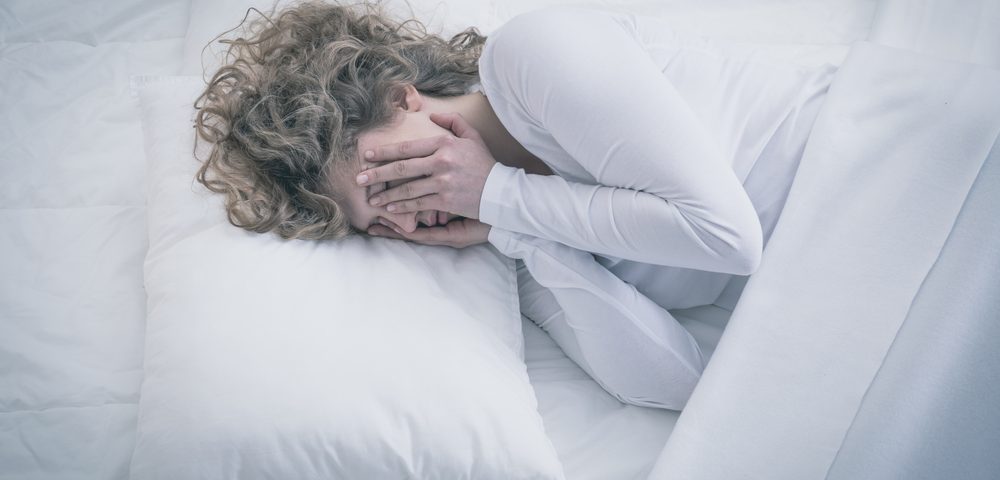People with fibromyalgia have poor sleep quality and experience more sleep disturbances than people without the disorder, according to data from a new study.
The study, “Comparison of sleep structure in patients with fibromyalgia and healthy controls,” was published in the journal Sleep and Breathing.
More than 90% of patients with fibromyalgia report experiencing sleep problems, including difficulty falling asleep, frequent nighttime awakenings, and poor sleep quality.
Most studies on sleep and fibromyalgia have focused on sleep quality, since the amount of sleep does not seem to vary between patients with the disease and healthy individuals. Even when patients sleep six to eight hours a night, they often wake up feeling fatigued, unrefreshed, stiff, and in pain.
The relationship between pain and sleep disturbances is thought to be bidirectional — pain affects sleep, and, in turn, sleep problems exacerbate pain. Therefore, treating sleep disturbances in people with fibromyalgia may ease their pain.
Polysomnography (PSG) is a sleep test that records brain waves, blood oxygen levels, heart rate, and breathing, as well as eye and leg movements to diagnose any underlying sleep disorders.
Prior studies have reported differences in several PSG parameters between those with and without fibromyalgia. However, these findings have been inconsistent across studies.
A group of researchers in Turkey set out to compare the sleep structure, using objective and subjective sleep parameters, of patients with fibromyalgia with that of healthy individuals (controls). In particular, they sought to examine if certain PSG parameters might differ between the two groups.
“We hypothesized that polysomnography (PSG) measures representing sleep disruption, such as arousal number, number of awakenings, [and] wake after sleep onset would distinguish FMS [fibromyalgia] patients from controls,” they wrote.
They analyzed the sleep structure of 33 patients with fibromyalgia and 34 controls using the Pittsburgh Sleep Quality Index (PSQI), Epworth Sleepiness Scale, and PSG.
They tracked sleep structure using the arousal index, a measure of sleep disruption; the apnea hypopnea index, which tracks the severity of sleep apnea (a condition in which a person may stop breathing during sleep); and N1 sleep, the transition period from wakefulness to sleep.
As expected, those with fibromyalgia had higher PSQI scores, indicating poor sleep quality, than healthy controls.
Data from PSG showed that patients with fibromyalgia awakened more often during the night, experienced more arousals, had a higher arousal index, a greater apnea hypopnea index, and less N1 sleep when compared with controls.
The researchers conducted discriminant analysis to determine which specific PSG parameters could be used to distinguish those with fibromyalgia from healthy individuals. Their analysis showed that three PSG parameters — the number of arousals, arousal index, and N1 sleep — were able to distinguish patients from healthy controls with 78.5% accuracy.
They also found that 12 of the 33 patients with fibromyalgia had obstructive sleep apnea syndrome (OSAS). Since OSAS can increase the number of arousals by affecting patients’ breathing, researchers excluded patients with OSAS from the analysis.
However, even after excluding these patients from the analysis, they found a statistically significant difference between the two groups regarding the number of awakenings, arousals, and arousal index.
That suggests the statistically significant difference between the two groups “was not caused by the presence of OSAS, and apart from respiratory abnormalities, other arousal mechanisms may affect sleep in patients with FMS,” the researchers said.
Those with FMS “had poorer subjective sleep quality, and significant differences in polysomnographic parameters” when compared with healthy controls, they said.
The study also “supports a higher prevalence of OSAS in patients with FMS,” they said. “Despite similar clinical manifestations, FMS patients should be evaluated for OSAS due to treatment differences.”
Treatments to improve sleep quality, including continuous positive airway pressure (CPAP), may be beneficial to alleviate sleep disturbances and improve quality of life for those with fibromyalgia, they said.

